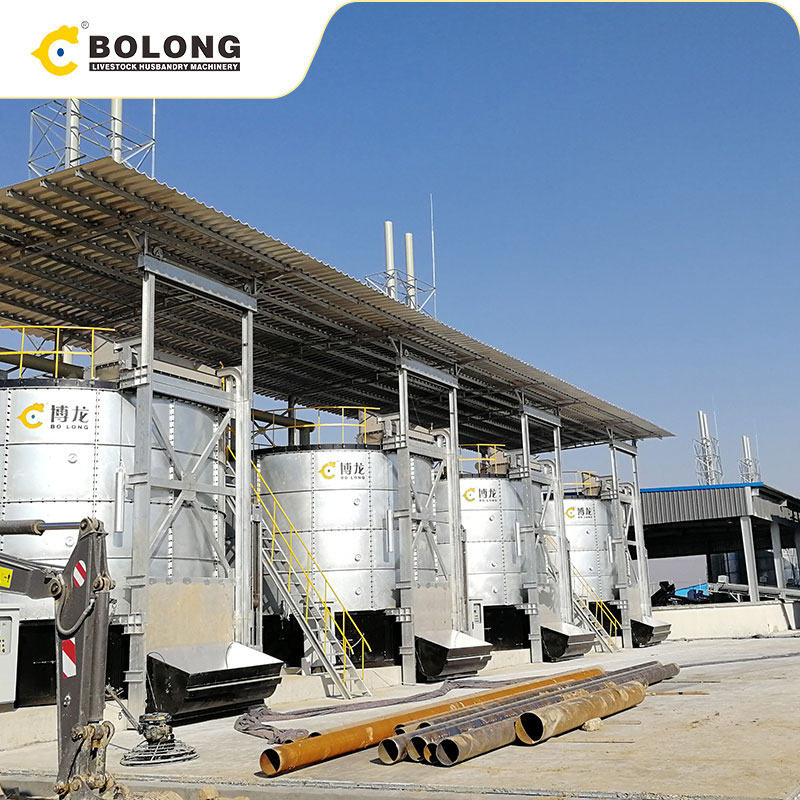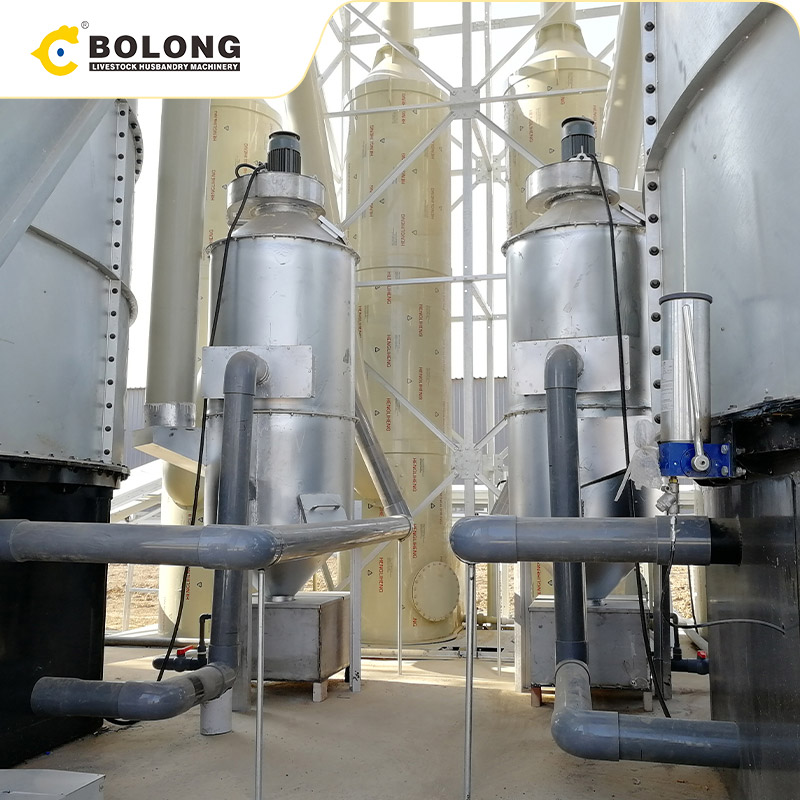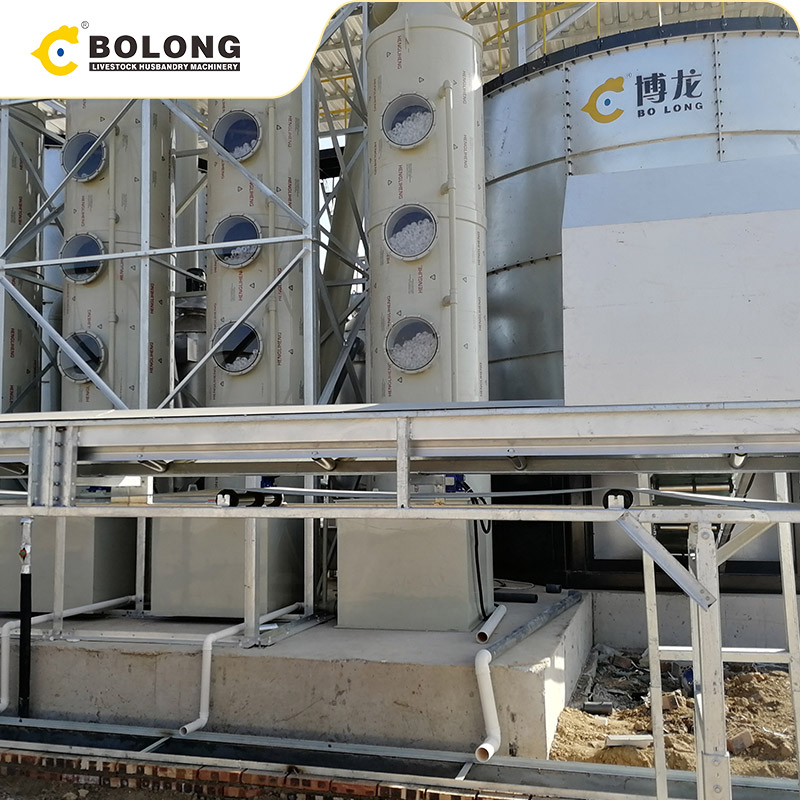Case
-
 Seize the opportunity!Composting machine leads the industry change
Seize the opportunity!Composting machine leads the industry changeIn today’s era, the agricultural sector is changing. The organic fertilizer industry has opportunities, and composting machines play a key role. They meet stricter environmental rules, satisfy market needs, and drive industry development with tech innovation. By innovating production, providing quality fertilizers, and being eco – friendly, they lead. A big firm saw great results after adoption. Seize the chance, contact us to adopt a composting machine and boost the industry’s sustainable growth now!
More -
 You will have full control over the composting machine after learning about these tips!
You will have full control over the composting machine after learning about these tips!In the production of organic fertilizer, it is crucial to master the operation skills of composting machine. Before operation, equipment inspection, raw material preparation and parameter setting should be done well; during operation, feeding, stirring, ventilation and temperature control should be controlled well; after discharging, the timing of discharging should be grasped and fertilizer storage and treatment should be done well, which is of great significance to organic agriculture.
More -
 Unlock the Potential of Organic Fertilizer Making Machines for Green AgricultureThe global trend towards sustainability has put immense pressure on agricultural operations to find innovative ways to manage waste. One such solution is the organic fertilizer making machine, which helps convert organic waste into valuable fertilizer that can benefit both the environment and the agricultural sector. With advancements in technology, companies like Bolong are leading the charge in providing high-quality organic fertilizer making machines that offer practical solutions t...More
Unlock the Potential of Organic Fertilizer Making Machines for Green AgricultureThe global trend towards sustainability has put immense pressure on agricultural operations to find innovative ways to manage waste. One such solution is the organic fertilizer making machine, which helps convert organic waste into valuable fertilizer that can benefit both the environment and the agricultural sector. With advancements in technology, companies like Bolong are leading the charge in providing high-quality organic fertilizer making machines that offer practical solutions t...More -
 Why Investing in a Compost Making Machine is the Key to Sustainable AgricultureAgricultural sustainability is becoming increasingly important as the world faces environmental challenges. Efficient waste management plays a crucial role in promoting this sustainability. One of the best ways to transform agricultural waste into valuable resources is through composting. The efficient compost making machine helps farmers and businesses alike efficiently turn organic waste into high-quality compost, improving soil fertility, reducing waste, and supporting environmental...More
Why Investing in a Compost Making Machine is the Key to Sustainable AgricultureAgricultural sustainability is becoming increasingly important as the world faces environmental challenges. Efficient waste management plays a crucial role in promoting this sustainability. One of the best ways to transform agricultural waste into valuable resources is through composting. The efficient compost making machine helps farmers and businesses alike efficiently turn organic waste into high-quality compost, improving soil fertility, reducing waste, and supporting environmental...More -
 The Role of Fermentation Tanks in Supporting BiodiversityIntroduction Biodiversity is crucial for ecosystem health and resilience. Fermentation tanks support biodiversity by producing compost that enhances soil health and provides habitat for beneficial organisms. Importance of Biodiversity Biodiversity supports ecosystem functions, including nutrient cycling, pest control, and pollination. Maintaining and enhancing biodiversity is essential for sustainable agriculture and environmental health. Role of Fermentation Tanks Fermentation...More
The Role of Fermentation Tanks in Supporting BiodiversityIntroduction Biodiversity is crucial for ecosystem health and resilience. Fermentation tanks support biodiversity by producing compost that enhances soil health and provides habitat for beneficial organisms. Importance of Biodiversity Biodiversity supports ecosystem functions, including nutrient cycling, pest control, and pollination. Maintaining and enhancing biodiversity is essential for sustainable agriculture and environmental health. Role of Fermentation Tanks Fermentation...More -
 Fermentation Tanks and Sustainable Soil Amendment PracticesIntroduction Soil amendments are essential for maintaining soil health and fertility. Fermentation tanks provide a sustainable method for producing high-quality compost, supporting effective soil amendment practices. Importance of Soil Amendments Soil amendments improve soil structure, fertility, and water retention. Organic amendments, such as compost, are particularly valuable for enhancing soil health and supporting sustainable agriculture. Role of Fermentation Tanks Fermentation t...More
Fermentation Tanks and Sustainable Soil Amendment PracticesIntroduction Soil amendments are essential for maintaining soil health and fertility. Fermentation tanks provide a sustainable method for producing high-quality compost, supporting effective soil amendment practices. Importance of Soil Amendments Soil amendments improve soil structure, fertility, and water retention. Organic amendments, such as compost, are particularly valuable for enhancing soil health and supporting sustainable agriculture. Role of Fermentation Tanks Fermentation t...More